Block by block, New York City has something for everyone – and every style.
“The best part about shopping here is getting lost in the streets and stepping into any store that catches your eye,” says Brandy Joy Smith, a fashion stylist for advertising and editorial photo shoots for whom shopping is literally a full-time job.
Indeed, shopping in the Big Apple is a big adventure and big reason people travel here.
“New York has a sense of discovery built into its flavor,” says Alex Sweterlitsch, who consults for brands like Gucci and Coach, and dresses celebrities and models for fashion stories.
But move fast: That must-have item you spotted in a window or inside a cool pop-up today might be gone tomorrow. “New York is constantly changing,” says Smith. “The style here is so innovative. Even the most extreme forms of self-expression are welcome.”
And while traditional retail is hurting, nothing beats the experience of browsing the racks, feeling the clothes, and trying them on in an expertly-curated store, says Sweterlitsch: “People crave that in-person contact.”
We polled designers and stylists on their favorite neighborhoods to browse and stores to shop.
Trending neighborhoods
Best all-around: Soho
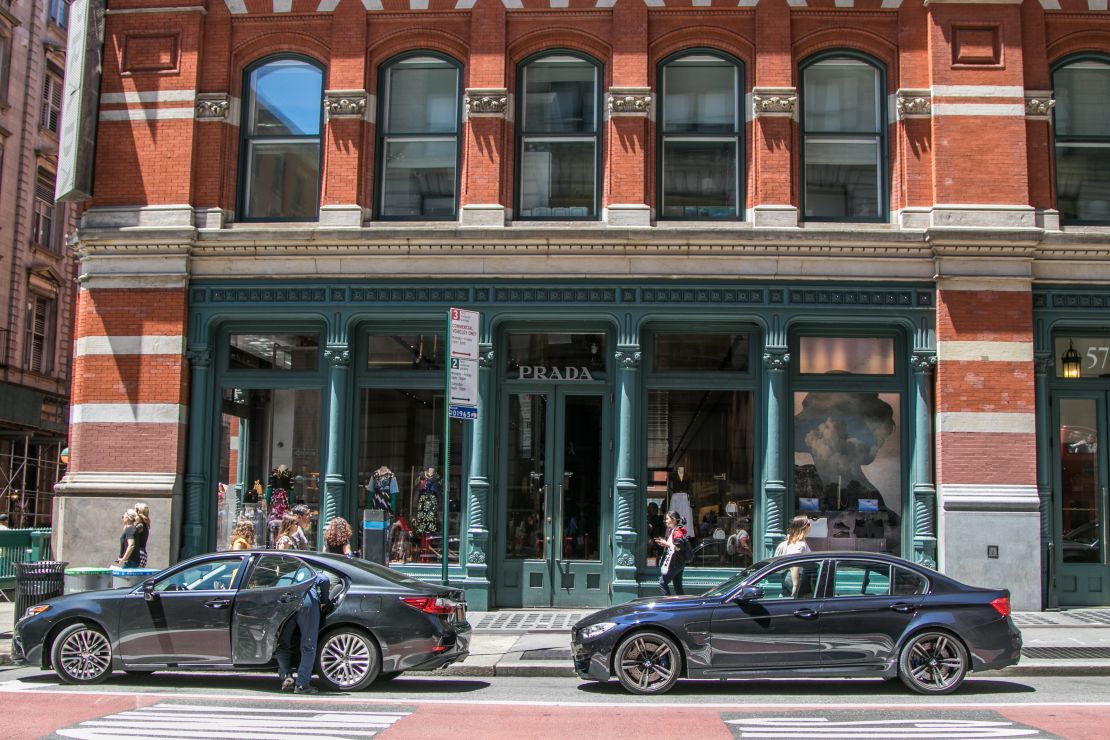
This neighborhood is mobbed by tourists year-round for a reason: The concentrated high-low mix of indie boutiques, covetable street fashion and department stores are a shopper’s paradise. “Everything you’d want or can possibly imagine exists here,” says Smith.
It’s all-too-easy to go from brunch to a leisurely shopping stroll. Sweterlitsch likes to nosh at Sant Ambroeus, grab a tea to-go at Cha Cha Matcha and then check out the MoMA Design Store, Prada, Nike and TheRealReal, a luxury consignment store. “The architecture of SoHo is very specific and trickles into the retail experience of the neighborhood,” he says.
Stylist William Graper likes to browse shops in the quieter, off-the-beaten path intersection of Crosby and Howard streets to escape crowds — and peep the street style. “It feels quintessential New York to me: Cobblestones and historic buildings with beautiful moldings,” he says. “This corner now houses a stunning Rick Owens store and Opening Ceremony.”
Emerging designers: Lower East Side
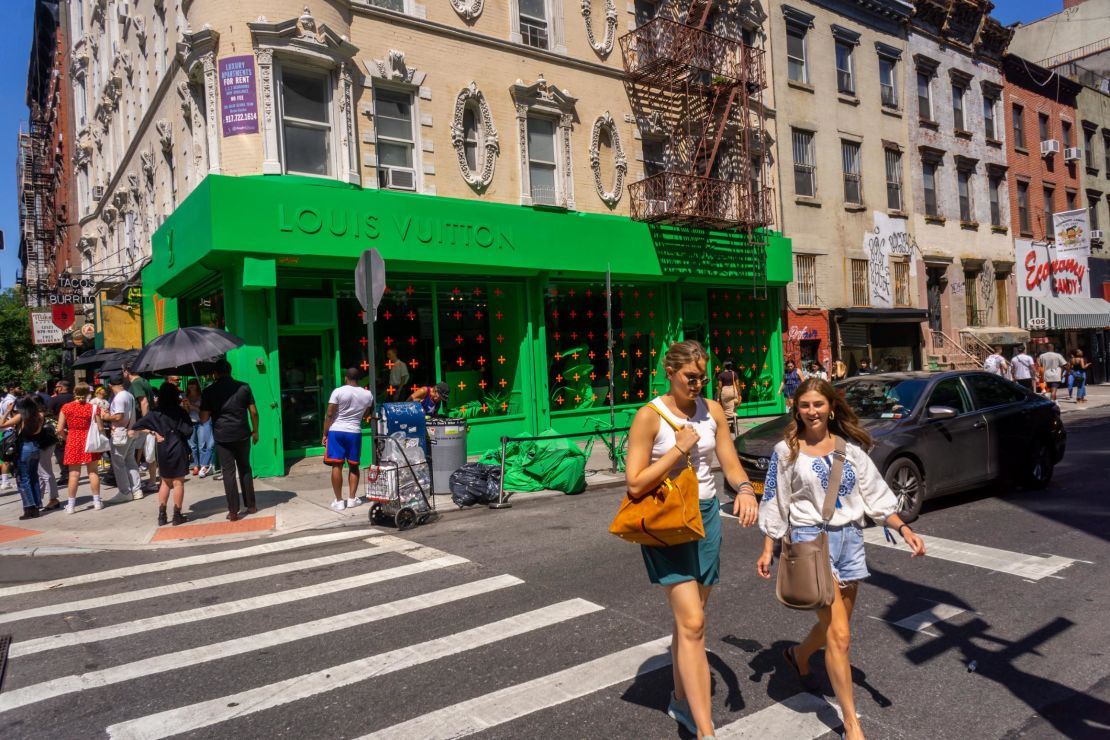
Up until the 1970s, shoppers flocked to Orchard Street on the Lower East Side for heavily discounted brand names. Today, the neighborhood comprises art galleries, trendy restaurants and bars and small underground boutiques — but still retains its gritty art-punk ethos. “The vibe of the neighborhood is a big part of the Lower East Side’s charm factor,” says Smith. “It’s grungy and trendy at the same time. And it doesn’t try too hard. There’s a mix of upscale, vintage and boutique pieces in a non-fussy atmosphere. ”
Stop by Maryam Nasir Zadeh for handmade accessories and Extra Butter for the latest sneaker drops.
Luxury: Madison Avenue
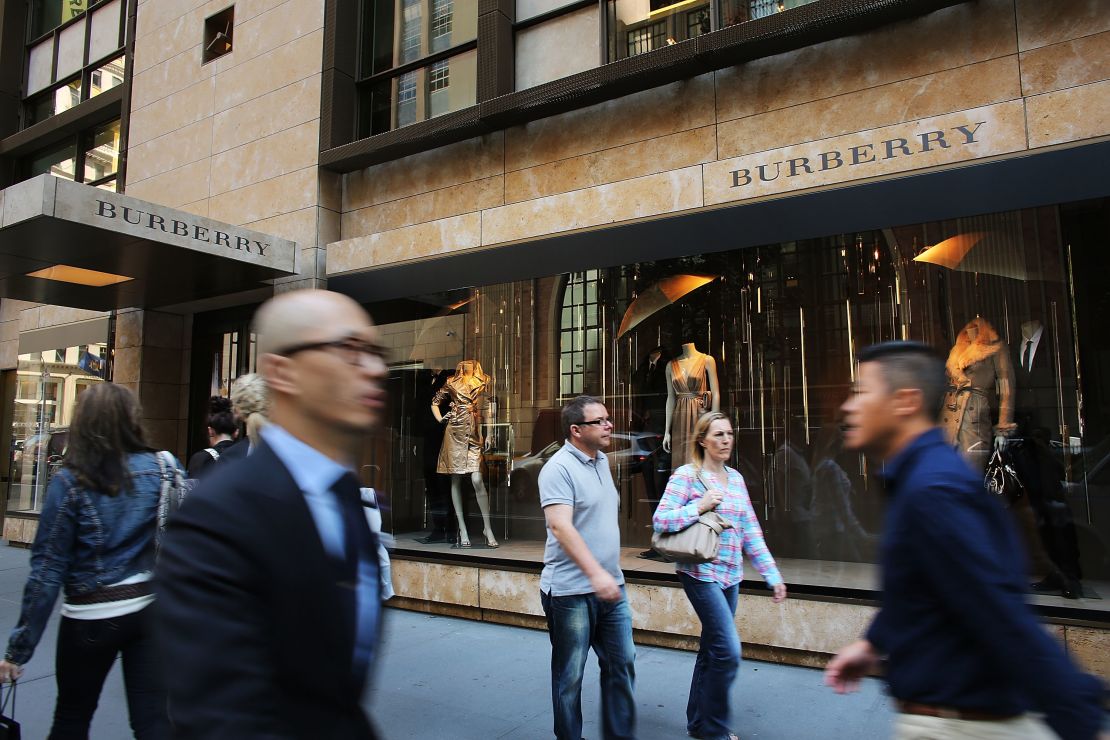
The famous shopping stretch of Madison Avenue on the Upper East Side is home to high-end labels like Chanel, Tom Ford, and Burberry; fine jewelry from Cartier, Chopard and Graff; and shoes by Roger Vivier and Jimmy Choo. And even if most shoppers can’t pop in and buy, these stores are so stylized that gazing at the window displays is akin to spending time at an art gallery.
“Madison Avenue still holds it down for luxury brands,” says Sweterlitsch, who lives in the neighborhood and calls it quieter and more relaxed than downtown. “I never feel rushed or crowded when I shop there. Plus, when you reach retail fatigue, Central Park or a museum is always nearby to enjoy.”
He suggests taking in the glittering window displays at Hermes, Graff and Fred Leighton, and actually opening your wallet at Acne Studios for investment-worthy denim and knitwear.
Indie Hip: Williamsburg, Brooklyn
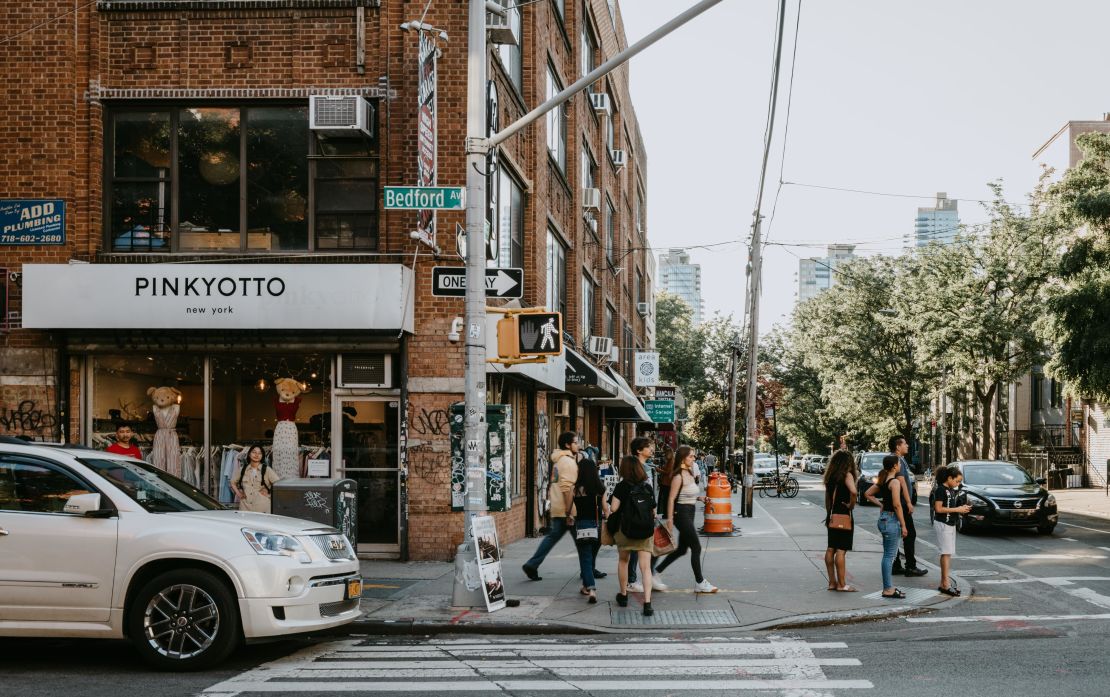
More than a decade after artists and musicians made Williamsburg the epicenter of hipster cool, the neighborhood has undergone a mass-market transformation. And while the main drag of Bedford Avenue now has a Sephora, Whole Foods and an Apple Store, there are still indie boutiques and vintage shops to explore — at slightly cheaper prices. Stop by In God We Trust to discover local designers and Awoke Vintage for affordable chic pieces.
Smith often takes a slow stroll in the area for people-watching: “Dressing in Williamsburg is slightly different than how people dress in Manhattan,” she says. “It’s a touch laid back and a touch trendy. There are also countless clean beauty and wellness stores that will make you feel good.”
Local fave: West Village
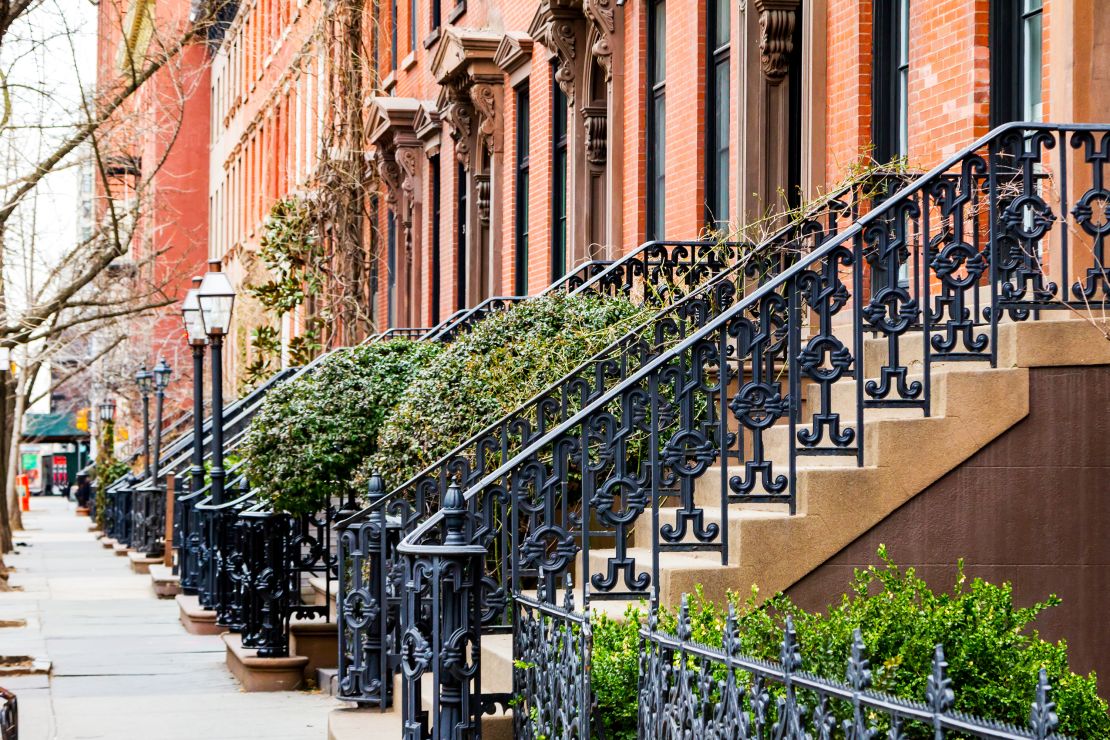
“The West Village is home to some of the quaintest shops in New York City,” says Graper, who declares this neighborhood the most pleasant shopping experience in the city because of its tree-lined streets, welcoming shopkeepers and less people and traffic compared to other neighborhoods. “Something about shopping in the West Village feels organic – you see something in the window and pop in to find out more,” he adds. “It’s less of a destination shopping spot and more European in its casual feel.”
Don’t miss Sandro on Bleecker Street and Donna Karan’s lifestyle boutique Urban Zen, where proceeds go to charity.
Concept stores
For downtown cool: Opening Ceremony
Located at the intersection of Soho and Chinatown, the original Opening Ceremony on Howard Street opened in 2002 by two friends from UC Berkeley, Carol Lim and Humberto Leon. The duo (along with friends and family) refurbished the store themselves and the same DIY ethos remains as the brand expanded across the country and Tokyo. “I love to go to Opening Ceremony for inspiration,” says Smith. “You’ll find the coolest and most unique up-and-coming pieces, collaborations and brands.”
For all-day inspiration: Dover Street Market
“If I’m going to Midtown East for anything, it’s to pop into Dover Street Market,” says stylist Savannah White. The decidedly un-trendy location is on purpose: The founder of Comme Des Gar?ons, Rei Kawakubo, opened the New York branch of her concept shop in a part of town that’s usually ignored by fashionistas and shoppers.
On the outside, it looks like a classical temple, easily mistaken for a bank or a staid office building. Inside, the architecture is a riot of color, texture and patterns and outsider art. White recommends grabbing a coffee or a snack at Rose Bakery downstairs and spending a few hours taking in the visual displays and the new collections.
For French style: L’Appartment Sézane New York
Take a trip to France without getting on a plane by heading to the first U.S. outpost of the laid-back French label L’Appartment Sézane. The Nolita store is modeled off Sézane founder’s Parisian apartment, with plenty of plush seating, houseplants and a café. Flip through racks of pretty blouses and simple-chic dresses. “It’s like a small pocket of Parisian charm right in the heart of downtown,” says Smith.
For scouting new talent: Sincerely Tommy
Located on the first floor of a Bed-Stuy brownstone owned by the shop founder’s grandmother, Sincerely Tommy is known for discovering new designers. It’s even spawned an in-house line and, around the corner, a soon-to-open boutique hostel and restaurant. Grab a bite and coffee at Sincerely Tommy’s snack counter while you shop womenswear, artful jewelry and statement pieces for the home.
For Gifting: A/D/O
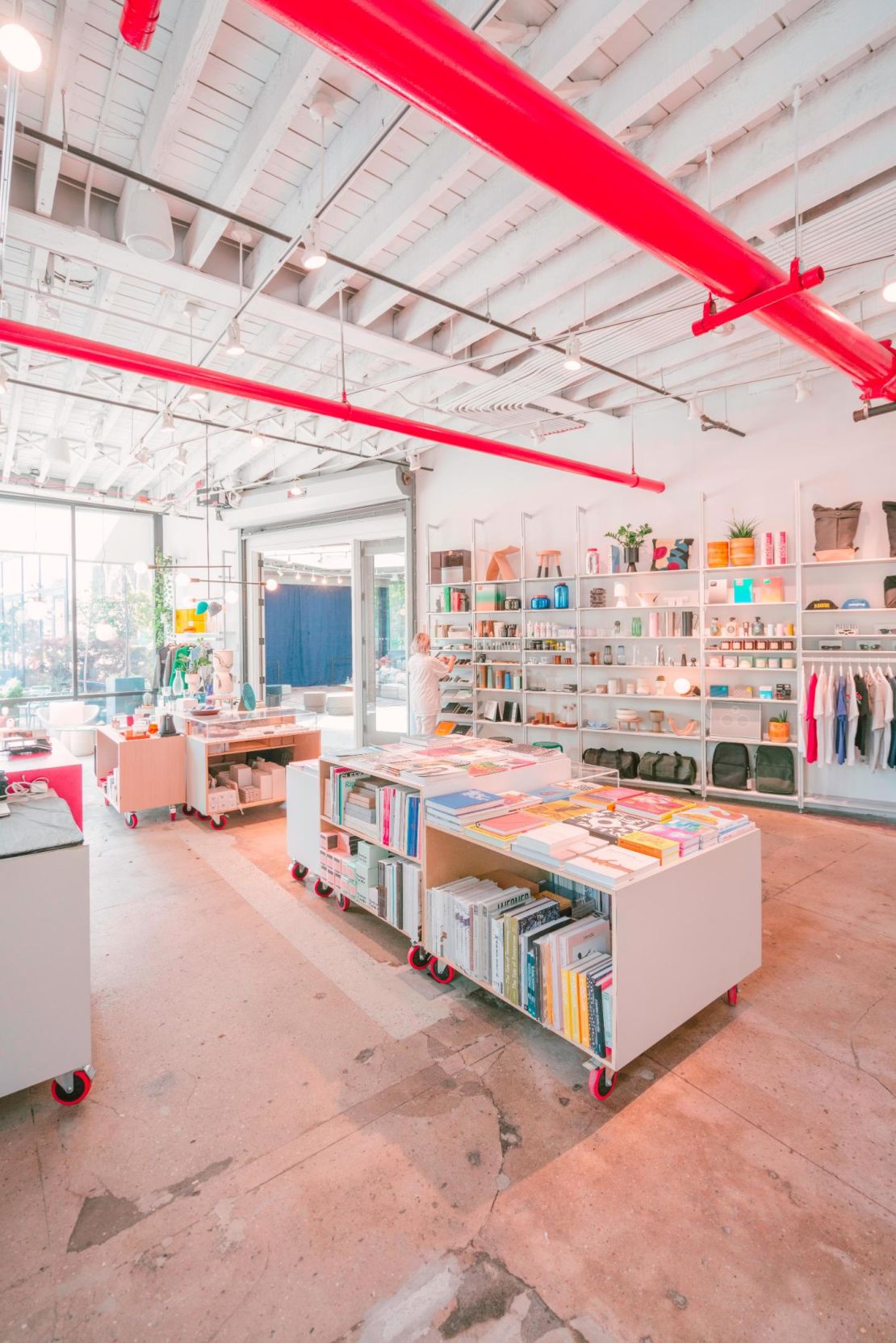
Set inside a massive converted warehouse in Greenpoint, A/D/O carves out spaces for art, design, retail, food and co-working under one roof. Brooklyn fashion designer Recho Omondi says the A/D/O shop is her go-to spot for picking up presents: “Their edit of product is so good it’s like they’re in my brain,” she says, referring to the owners’ meticulous curation.
Merchandise rotates in conjunction with the creative space’s calendar. On any given day, you might pick up a line of limited-edition sweatshirts designed in collaboration with up-and-coming brands, bleached denim clothing and accessories by LikeMindedObjects or handmade accessories from local designers.
Best shops by category
Unique finds: IF Soho
Graper says this boutique’s avant-garde Japanese and European one-of-a kind clothes are worth the splurge. “With stores becoming safer with their buys each season, IF is one of those rare boutiques taking risks,” he adds.
The shop was founded in 1978, and sibling-owners Jeannette Bird, Johnny Farah and Soha Farah claim they were the first in the city to sell designers like John Paul Gaultier, Maison Martin Margiela, Ann Demeulemeester and Marc Jacobs.
Coolest chain: Sandro
With six locations in New York, this French brand is the Goldilocks of clothes: Not too expensive, not too cheap and not too overexposed. (You won’t show up to a party wearing the same outfit as another guest.) It’s just right. “When I want to grab something a little more retro, fun, and cool, I look to Sandro,” says Smith. “They nail mixing classic silhouette pieces with fun, unexpected designs, prints or shapes.”
Most affordable: & Other Stories
Owned by H&M, Swedish brand & Other Stories is a hit with Instagram influencers. They sell everything from clothes to beauty to housewares, and most items hover around the $100 mark. “This is a more affordable option for everyday basics, cool jackets and great bags,” says Smith.
And you can recycle your old clothing to score a discount.
Emerging designers: Kirna Zabête
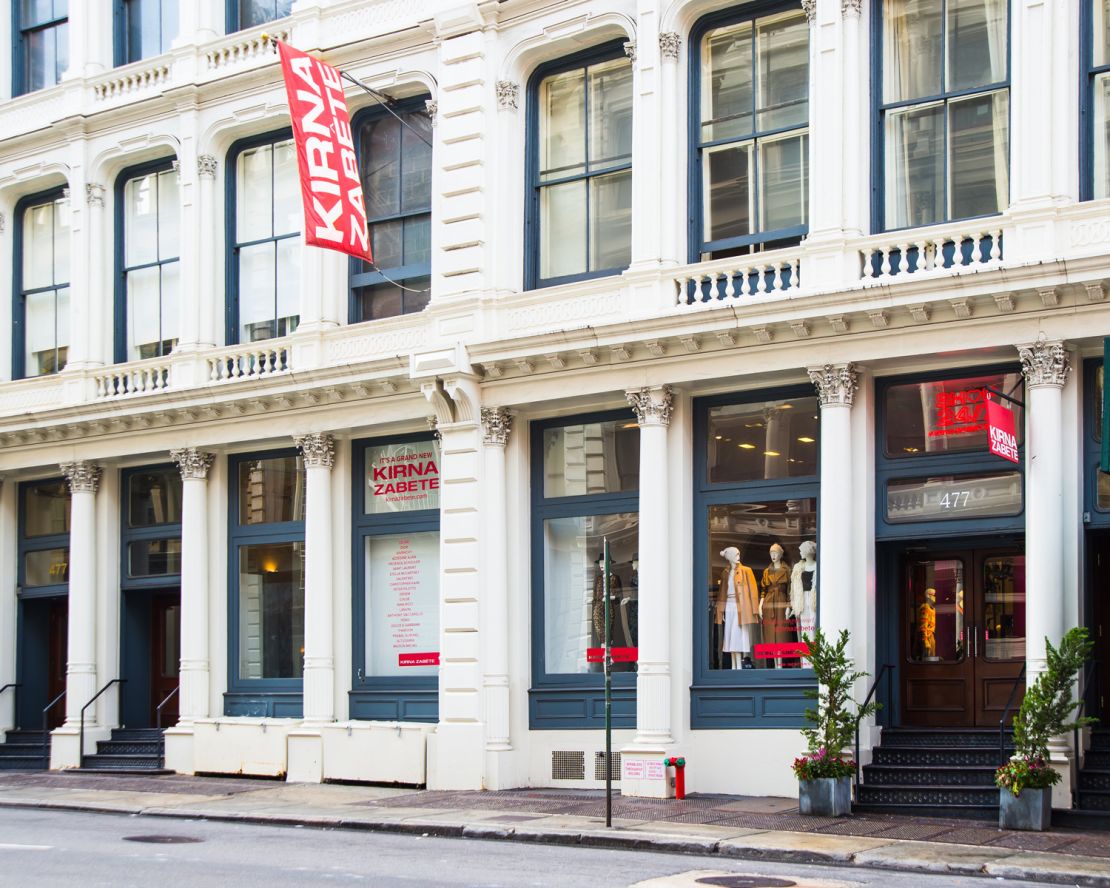
Turning 20 years old in September, Kirna Zabête introduced New Yorkers to designers such as Rick Owens and Nicolas Ghesquière — and emphatically urged black-clad Manhattanites to wear color. To celebrate the store’s birthday, the boutique is releasing a capsule collection in partnership with 20 designers the store has championed.
Punk rock fantasy: Trash & Vaudeville
The Ramones bought their black skinny jeans at East Village mainstay Trash & Vaudeville — and so can you. “This outrageous punk spot offers ripped denim, creeper boots and pretty much anything Iggy Pop would sport on the stage,” says Graper. He also likes their selection of gently-priced T-shirts and leather jackets.
Millennial minimalism: Bird
With three Brooklyn locations (and a new outpost in Los Angeles), Bird carries a wearable edit of of-the-moment pieces by buzzy designers for the sophisticated, trendy minimalist, says Smith. She scours the store for pieces that will transition a client from day to night seamlessly.
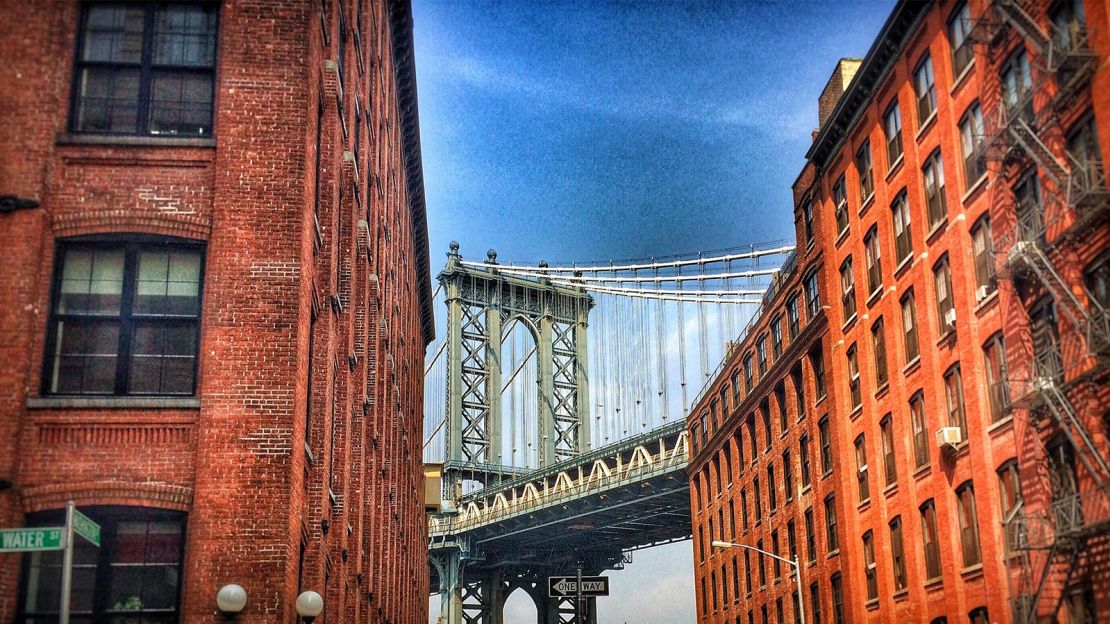
Best suits: Suit Supply
Dutch import Suit Supply infuses playfulness into buying a suit. The lighting is bright, the décor is loud and the range of fabrics and styles is impressive at five locations across Manhattan and Brooklyn.
Even though it inhabits the middle zone of suit pricing (starting at $359 and with pricier options for made-to-measure), Sweterlitsch says the suits are made exceptionally well.
Local designers: In God We Trust
This Williamsburg boutique is owned by a Fashion Institute of Technology grad, and all the jewelry is made on-site. “This is a great locally sourced store providing fun, ethical, and authentic New York pieces,” says Smith. “You can find anything from a perfect raw denim overcoat, to funky sunglasses, to a gift for your friend’s housewarming party.”
Sustainable chic: Reformation
With three locations downtown, Smith calls the eco-minded brand Reformation simple and easy. “It makes me feel feminine, romantic, and naturally beautiful,” she says. “And I love that it’s a sustainable line that I can feel comfortable purchasing.”
Hip beachwear: Pilgrim Surf + Supply
Head to Williamsburg’s corner store Pilgrim for the best in laid-back surf culture vibes. Graper suggests picking up loose pants, great T-shirts, swim trunks, blankets and boards. “It’s family run and you can feel the love,” says Graper.
Edgy eveningwear: Landeros New York
While it’s not technically a store, genderless line Landeros has a studio in the Garment District that occasionally hosts sample sales. “I am absolutely obsessed with designer Andre Landeros Michel’s take on fashion,” says Sweterlitsch. Inspired by Michel’s club kid days, the line features structured statement pieces in bold colors and rich fabrics that anyone can wear for a night out.
Men’s streetwear: Noah
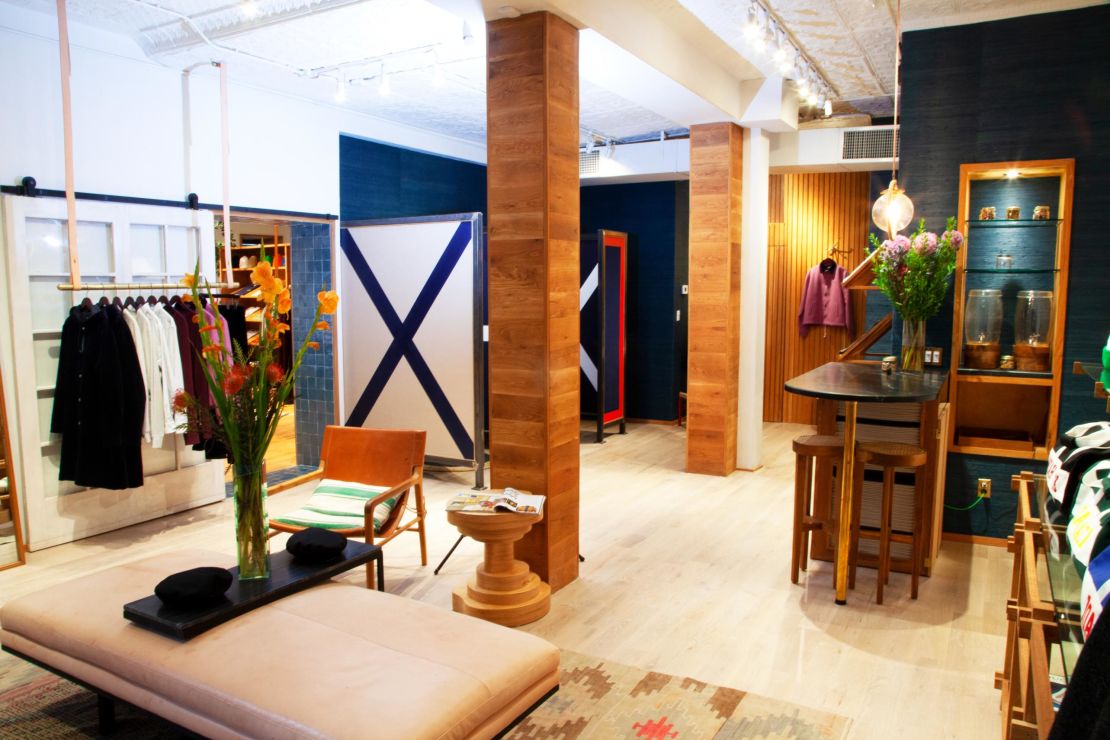
Supreme’s former creative director, Brendon Babenzian, launched Noah, his own clothing label and shop in Soho in 2015, down the street from his old employer.
His goal: To create clothes that are built to last. Noah recently added another section of well-priced elevated streetwear to its shop, and White often stops by to take in the store’s “good vibes and interior design” and to chat with the hip sales associates about new merchandise.
For do-gooders: Urban Zen
After leaving her namesake line in 2015, Donna Karan focused on expanding Urban Zen, her socially conscious brand and foundation launched in 2006. The West Village flagship store is an oasis of calm and the clothes — earth toned and drape-y — are the designer’s signature look.
A percentage of sales sold go back to the Urban Zen foundation, which supports charitable initiatives to empower children, educate and improve healthcare around the world.
Unique accessories: Maryam Nassir Zadeh
This spare Lower East Side boutique carries a tight curation of handmade glass jewelry, bags, hats, hair accessories and colorful shoes. “I don’t know how they do it, but they have the best stuff from earrings to hair barrettes,” says Omondi. “It’s kind of pricey, but worth it if you treat your accessories like little treasures.”
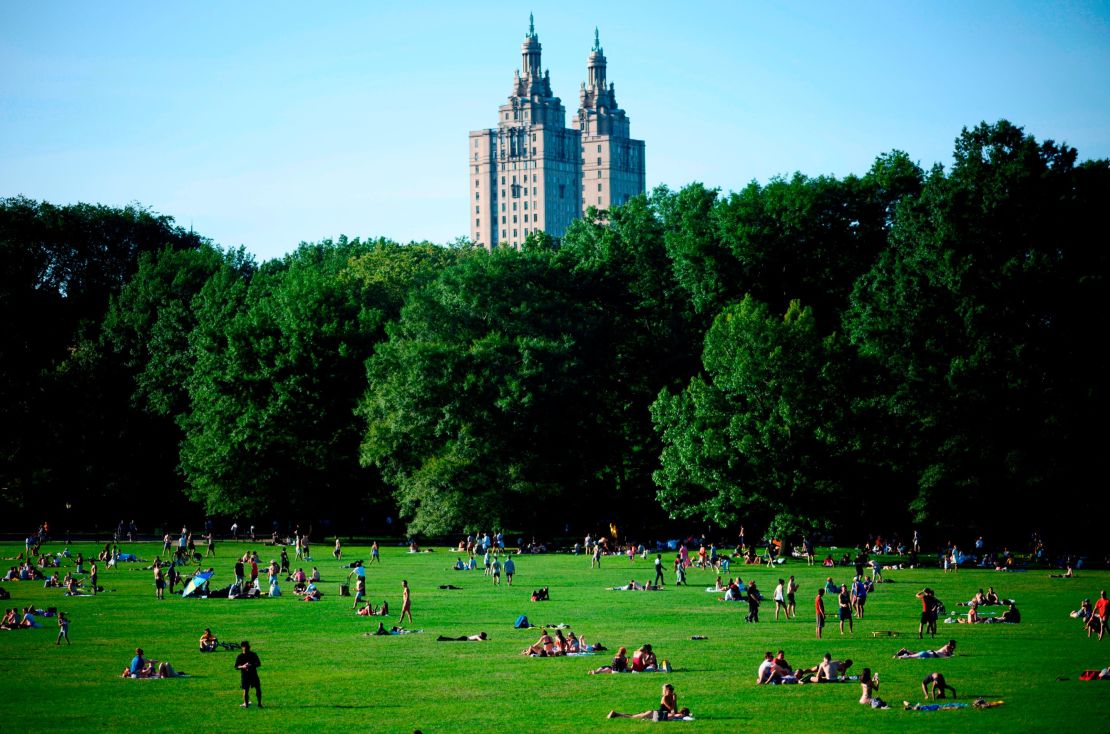
Estate jewelry: Doyle & Doyle
Sisters Elizabeth and Irene Doyle grew up rifling through their grandmother’s jewelry box — and never stopped playing. Their Meatpacking District store has a subtle navigation theme (think: North stars and armillary spheres) and displays the treasures the sisters brought home after scouring the world: everything from Art Nouveau lockets to Edwardian diamond drop earrings to an impressive collection of vintage engagement rings.
Trending sneakers: Extra Butter
Omandi likes this cinematic-feeling sneaker boutique on the Lower East Side for its well-edited collection of kicks and streetwear from around the world. It’s gained a loyal following through excellent customer service and by hosting regular events like movie nights and magic shows.
Notice-me eyewear: Linda Farrow
White recommends sunglasses and optical frames from luxury British eyewear brand Linda Farrow. The Soho shop has striking concrete floors, meant to extend the sidewalk to within. Launched in London in 1970, the brand is known for innovative shapes and the use of precious platinum, gold and rose gold lenses.
Vintage finds
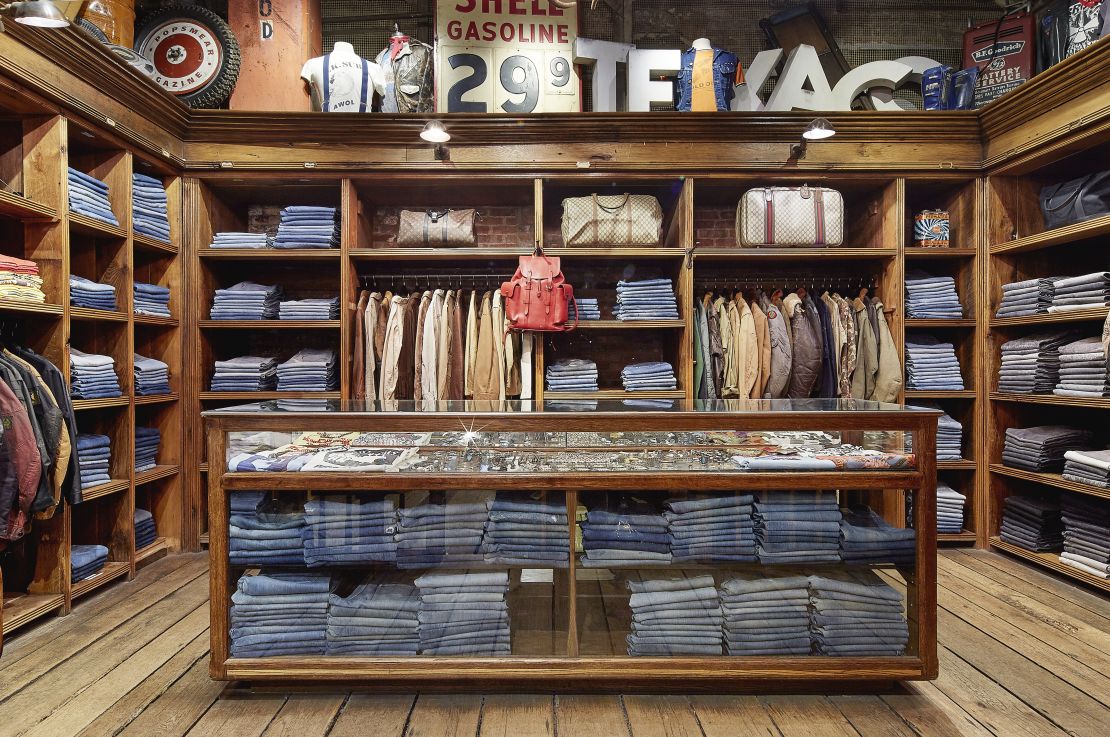
Harold and Maude in Brooklyn’s Bed-Stuy neighborhood sources clothing from all over the United States and Japan. The founders recently launched a collection using Japanese textiles. “I’ve found some good collegiate tees from the 1960s there,” says Omondi.
What Goes Around Comes Around with locations Soho and the Upper East Side, is famed for its curation of rare vintage designer bags, clothing, jewelry and accessories in pristine condition.
Awoke Vintage, with a shop in Williamsburg and two in Greenpoint has a “cool, eclectic collection at great prices along with some funky, unique accessories,” says Graper.
New York Vintage in Chelsea specializes in Chanel and Thierry Mugler. The ground floor is a shop that’s open to the public; upstairs is for rentals and is by referral and appointment only.
Consignment Finds
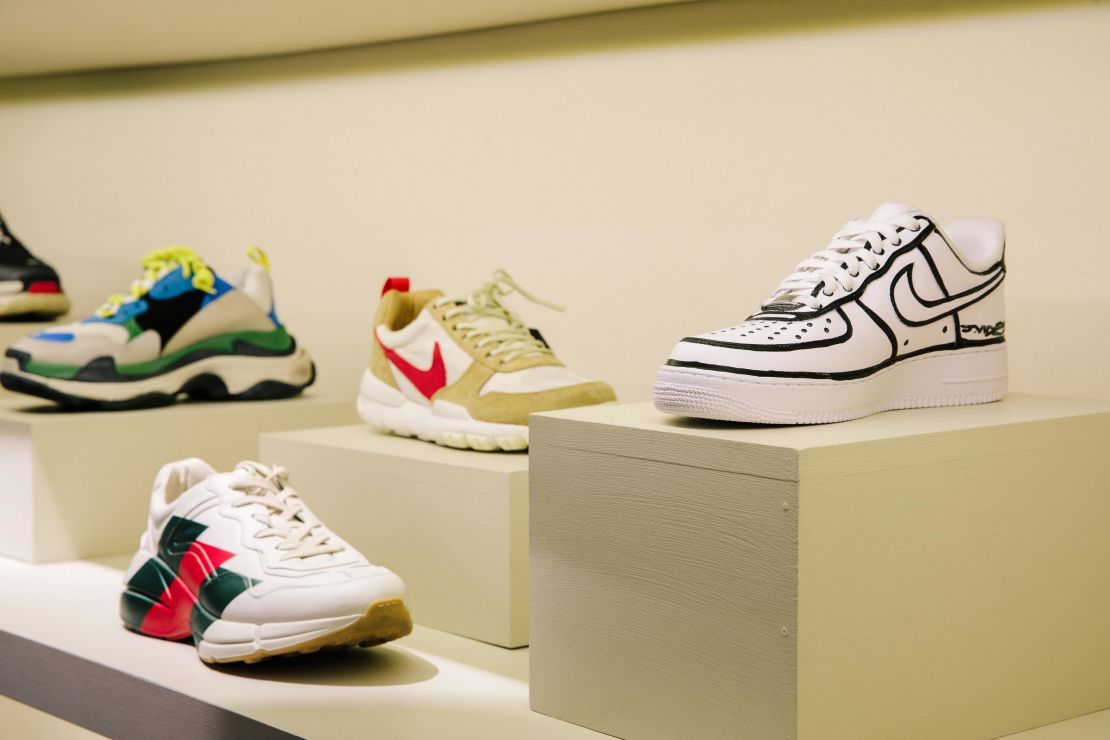
The Real Real in Soho is a stylist favorite for its broad selection and stellar customer service. (Don’t skip the coffee shop and garden in the back.) “It is one of my favorite shops in the world,” says Sweterlitsch. Adds Graper of the consigning-your-stuff process: “They make everything so easy. They come to your house, sort through what you have to consign, photograph and list it within a week.”
Tokio 7 in the East Village sells high-end brands like Prada, Louis Vuitton and Calvin Klein as well as local designers in a 3,000 square foot space. It’s also an ideal spot to sell your cast-offs. “The owners have a keen eye for special things, pay sellers in cash extremely fairly and make the process super user-friendly,” says Graper.









